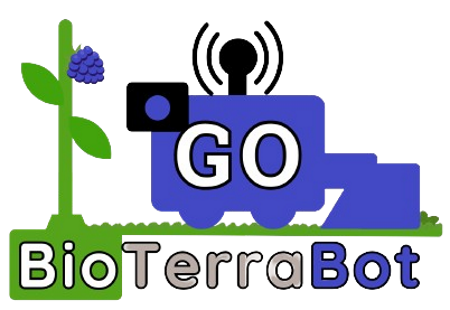
BIO TERRABOT Operational Group: Robotic control of plant cover by removing plastic mulch from the soil in organic berry cultivation.
- Type Operational group
- Status In progress
- Execution 2023 -2025
- Assigned Budget 299.986,04 €
- Scope Autonómico
- Autonomous community Andalucía
- Project website GO BIOTERRABOT
The expected results to be achieved and, consequently, disseminated will be the following: A clear reduction in the environmental impact of organic greenhouse farming, by eliminating the use of agricultural plastics in favor of natural cover that will promote fertilization and increase biodiversity. A significant reduction in production costs and improvement of organic greenhouse farms will facilitate their restructuring and modernization, particularly with a view to increasing their market share and orientation, as well as agricultural diversification.
Improving the national and international competitiveness of the organic berry sector through the incorporation of disruptive technologies (robotics, IoT, advanced sensors, etc.). Improving and controlling the efficiency of natural resources. Significantly reducing plastic and fossil fuel waste. Reducing the carbon footprint and obtaining high-quality organic fertilizer. Technological adaptation of the Industry 4.0 sector to the agricultural sector. Transferring innovation, cooperation, and development from knowledge-based organizations to rural areas.
The Bio Terrabot project is working to combine organic production practices, the elimination of harmful agricultural waste, and digitalization in the organic berry sector. To this end, it will implement a plant cover of native species that promotes biodiversity in the crop, improving soil conditions and optimizing the management of weeds; it will replace plastic mulch with plant mulch; and it will develop an autonomously navigating robot to mow the plant cover.
The new regulations proposed by the CAP require the development of more sustainable crop use and soil management. In the particular case of greenhouse cultivation, this presents a series of challenges for producers. To ensure the success of greenhouse cultivation, it is important to understand the problems that can arise throughout the entire production process. One of the major problems facing this type of cultivation is the large amount of plastic waste.
Current berry cultivation, even in organic and agroecological agriculture, relies on soil mulching to control weeds that compete with the crop for water and nutrients. Currently, in the province of Huelva alone, four million kg of polyethylene are used annually in agricultural mulch. It is crucial to eliminate the use of plastic in greenhouse crops through various ecological alternatives that have a positive impact from the soil to the crop.
Given the problem of the widespread use of agricultural plastic, and sponsored by the EU Commission to adopt measures to reduce single-use plastics in production processes, the use of ground cover made from native plants appears to be an optimal alternative, also absorbing carbon from the atmosphere. This same ground cover is seen as a way to introduce biodiversity into the greenhouse itself, improve soil fertility, and promote the development of living soil.
The main or general objective of the Bio Terrabot project is to increase the competitiveness of the organic berry sector in the markets. Through solutions for eliminating agricultural plastics in organic berry cultivation, as well as controlled land use management through the implementation of native ground cover plants and the use of autonomous robotic solutions for mowing this ground cover, the environmental recognition of farms where these practices are carried out will be promoted.
The results expected to be obtained and, consequently, disseminated will be the following:
- A clear reduction in the environmental impact of organic greenhouse farming, by eliminating the use of agricultural plastics in favor of a natural cover that will promote fertilization and increase biodiversity.
- A significant reduction in production costs and improvement of greenhouse organic farms, as well as facilitating their restructuring and modernization, particularly with a view to increasing their market share and orientation, as well as agricultural diversification.
- Improving the national and international competitiveness of the organic berry sector by incorporating disruptive technologies (robotics, IoT, advanced sensors, etc.) into the sector.
- Improve and control the efficiency of natural resources.
- Significant reduction in plastic and fossil fuel waste.
- Reducing the carbon footprint and obtaining a high-quality organic amendment. Technological adaptation of the Industry 4.0 sector to the agricultural sector.
- Transfer innovation, cooperation, and development from knowledge-based organizations to rural areas.
- Coordinator/entity name: Ecovalia Association
- Postal address: Av. Diego Martinez Barrio nº 10 Planta 1ª Mod. 12 41013, Seville
- Coordinator/entity email: proyectos@ecovalia.org
- Telephone: 955018961
- Asociación Ecovalia
- ORGANICULTURA S.L. (administracion@organicultura.com)
- UNIVERSIDAD DE CÓRDOBA (direccion.otri@uco.es)
- FUNDACIÓN CENTRO TECNOLÓGICO METALMECÁNICA Y DEL TRANSPORTE (CETEMET) (i+d+i@cetemet.es)
- SEMILLAS CANTUESO S.L.; (info@cantuesoseeds.com)
- DIPUTACIÓN DE HUELVA; (prguez@diphuelva.org)
- Asociación Ecovalia






